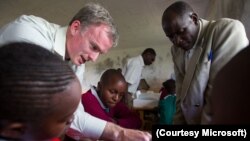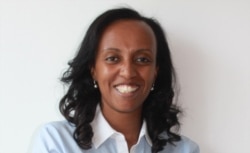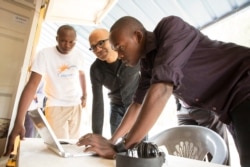With the announcement of two new development centers in Africa, Microsoft is signaling a commitment to building tech expertise on the continent.
Microsoft launched the Africa Development Center with initial hubs in Lagos, Nigeria, and Nairobi, Kenya in May.
Amrote Abdella, regional director of Microsoft’s 4Afrika Initiative, said the message is clear: “We’re here for the long haul.”
“We’ve really seen the opportunities,” she told VOA. “So it’s a proven and tested model around what we can really do in Africa and where Africa is both in terms of adoption but also in terms of creating new solutions that really speak to and solve some of the problems that we have on the continent.”
The tech giant began working in Africa 25 years ago, and in March opened two data centers in South Africa.
Researchers at the new centers in Lagos and Nairobi will ensure that Windows and other Microsoft products work with the millions of devices in use by African customers. In Lagos, a team will focus on “mixed-reality services,” including headsets and other devices that allow users to experience simulated scenarios and environments — tools useful in training for doctors, mechanics and other professionals.
Within five years, Amrote said, Microsoft expects 500 engineers will be working at the two sites. The company plans to invest $100 million in the project.
“It was an opportunity for us to really double down now with our engineering efforts. And looking at ways that we can attract talent — develop existing talent, but also create opportunities for others to also come in and do the same,” Amrote said.
Microsoft will work with local universities to develop curricula to prepare students for high-tech jobs focused on artificial intelligence, mixed reality and other emerging trends.
Akin Banuso, the country manager in Nigeria, said he couldn’t have imagined Microsoft making such a commitment in Africa 10 years ago. Now, with better internet connectivity and the growth of talent, it’s necessary. The local expertise African engineers will bring will be particularly useful, he said.
“These engineers are part of the community, and they’re able to come up with unique perspectives that we might miss otherwise,” Banuso said in a video announcing the project.
Amrote added that the project also signals a reversal of the “brain drain” problem, where the best and the brightest leave Africa to advance their careers.
“If you are a great software engineer, you don’t have to leave the continent to have a good career. And that is a game-changer,” she said. “So you think of the ripple effect that that has on the lives of these young men and women. It’s an opportunity for them to then pay it forward as well. I’d really like to see that. But really I think that this is just the beginning and not the end in that shift.”







